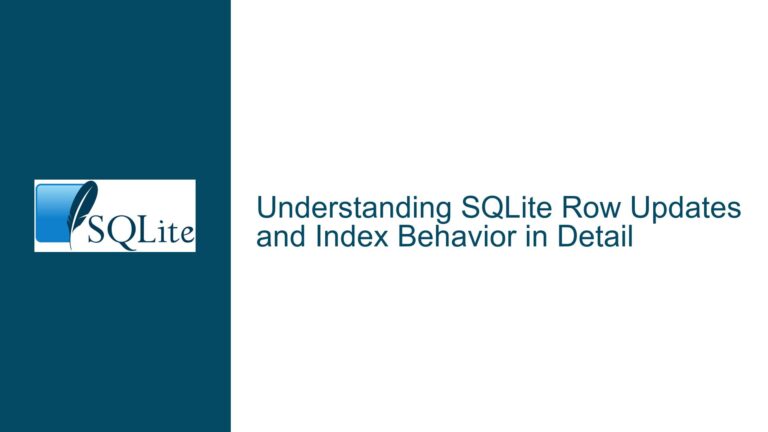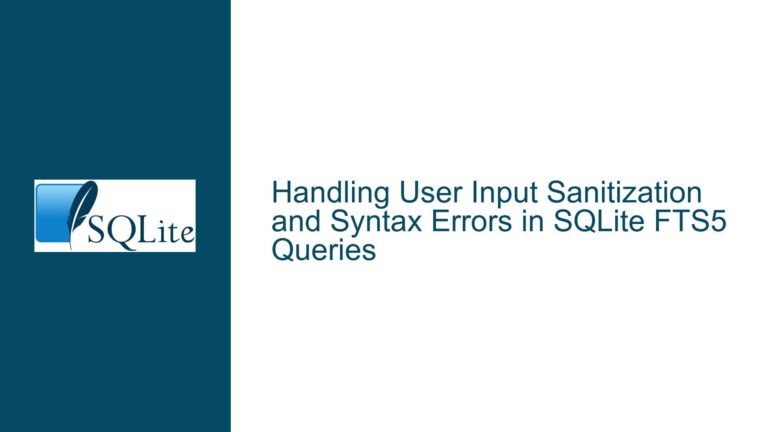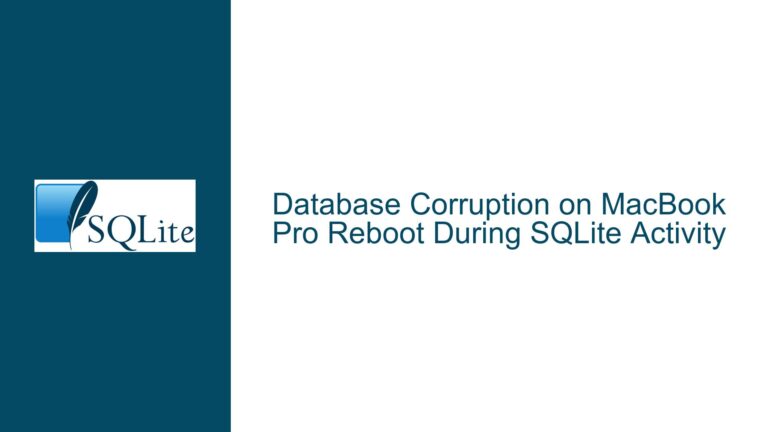File Descriptor Leak in SQLite Read-Only Fallback with WAL Mode
Issue Overview: File Descriptor Accumulation During Read-Only Fallback in WAL-Mode Databases SQLite employs a file descriptor management strategy to maintain locking integrity when operating in Write-Ahead Logging (WAL) mode. In WAL mode, database connections hold shared locks via fcntl() to coordinate concurrent access. These locks are tied to file descriptors (FDs), and SQLite retains FDs…









